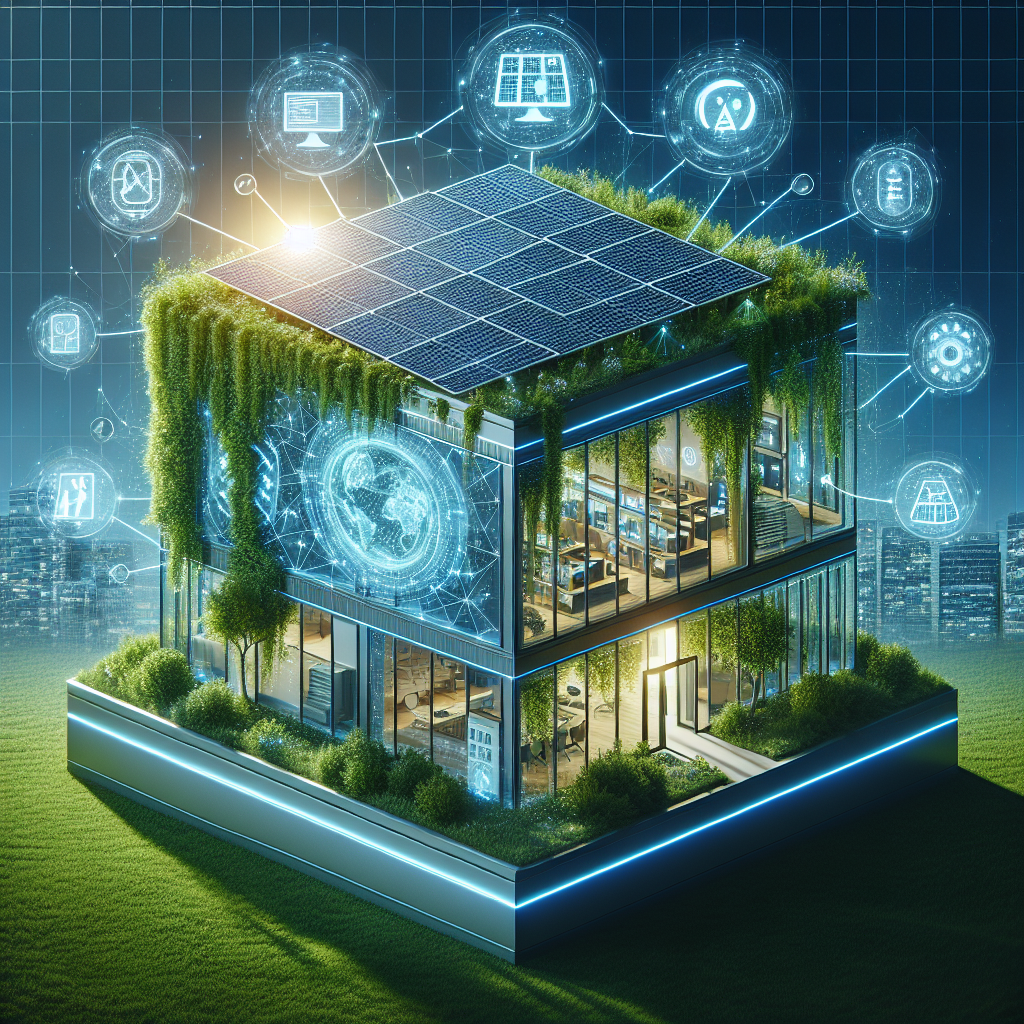In recent years, there has been a growing emphasis on sustainability and energy efficiency in the building industry. With the rise of climate change and the increasing demand for energy, it has become more important than ever to find ways to reduce energy consumption in buildings. One of the most promising technologies for achieving this goal is artificial intelligence (AI).
AI has the potential to revolutionize the way buildings are designed, constructed, and operated. By harnessing the power of AI, building owners and operators can optimize energy usage, reduce costs, and minimize their environmental impact. In this article, we will explore how AI can be used to create energy-efficient buildings and the benefits it can bring.
How AI Can Improve Energy Efficiency in Buildings
There are several ways in which AI can be used to improve energy efficiency in buildings. One of the key applications of AI in this area is in building automation systems. These systems use AI algorithms to control building systems such as heating, ventilation, and air conditioning (HVAC), lighting, and security. By analyzing data from sensors and other sources, AI can optimize the operation of these systems to minimize energy consumption while still maintaining comfort and safety.
Another way AI can improve energy efficiency in buildings is through predictive maintenance. By analyzing data from sensors and equipment, AI algorithms can predict when maintenance is needed and proactively schedule repairs to prevent breakdowns. This can help reduce energy waste caused by inefficient equipment and extend the lifespan of building systems.
AI can also be used to optimize building design and layout. By using AI algorithms to analyze data on building performance, energy usage, and occupant behavior, architects and engineers can design buildings that are more energy-efficient and sustainable. AI can help identify areas for improvement, such as better insulation, more efficient HVAC systems, or optimized lighting design.
Benefits of Using AI for Energy-Efficient Buildings
There are several benefits to using AI for energy-efficient buildings. One of the main advantages is cost savings. By optimizing energy usage and reducing waste, building owners and operators can save on utility bills and maintenance costs. AI can also help identify opportunities for energy efficiency incentives and rebates, further reducing costs.
In addition to cost savings, AI can help improve occupant comfort and productivity. By optimizing building systems for energy efficiency, AI can ensure that occupants are comfortable and healthy while also reducing energy consumption. Studies have shown that comfortable and healthy indoor environments can improve productivity and overall well-being.
Furthermore, using AI for energy-efficient buildings can help reduce environmental impact. By minimizing energy consumption and greenhouse gas emissions, buildings can contribute to a more sustainable future. AI can also help buildings meet green building certification requirements, such as LEED or Energy Star, which can enhance their value and marketability.
FAQs
Q: How does AI optimize energy usage in buildings?
A: AI uses algorithms to analyze data from sensors and other sources to optimize the operation of building systems such as HVAC, lighting, and security. By adjusting settings based on real-time data, AI can reduce energy consumption while still maintaining comfort and safety.
Q: Can AI help reduce maintenance costs in buildings?
A: Yes, AI can help reduce maintenance costs by predicting when maintenance is needed and proactively scheduling repairs. By identifying issues before they become major problems, AI can prevent breakdowns and extend the lifespan of building systems.
Q: How can AI improve building design for energy efficiency?
A: AI can analyze data on building performance, energy usage, and occupant behavior to identify areas for improvement in building design. By optimizing factors such as insulation, HVAC systems, and lighting design, AI can help create buildings that are more energy-efficient and sustainable.
Q: What are the benefits of using AI for energy-efficient buildings?
A: The benefits of using AI for energy-efficient buildings include cost savings, improved occupant comfort and productivity, and reduced environmental impact. AI can help optimize energy usage, reduce maintenance costs, and enhance the value and marketability of buildings.
In conclusion, harnessing the power of AI for energy-efficient buildings has the potential to revolutionize the building industry. By using AI algorithms to optimize energy usage, reduce maintenance costs, and improve building design, building owners and operators can create sustainable and environmentally friendly buildings. With the increasing focus on sustainability and energy efficiency, AI will play a key role in shaping the future of the building industry.

